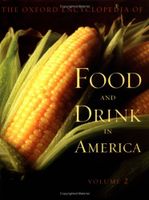Advertisement
Passover
Published 2004
Symbolic foods are eaten at all Jewish festivals, but in the case of Passover, they are part of the story. When Pharaoh finally released the Hebrew slaves, they had to leave so quickly that there was no time to let the bread rise before baking. They carried the dough on their backs, so it baked in the heat of the sun, causing it to cook too quickly for the yeast to leaven it and make it rise. Therefore, only unleavened bread, known as matzo may be eaten on the eight days of the festival. All leaven (hametz) is forbidden during Passover. This directive includes not only yeast-risen and fermented foods, but others that may be liable to ferment. Beer and whisky are forbidden, but not wine. Among Orthodox Jews, not only must every food product be kosher for Passover, toothpaste and even cleaning agents, such as pan-scourers and detergents, must be guaranteed leaven-free.


